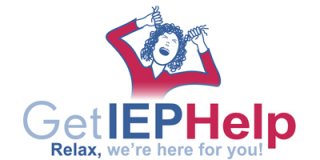
Articles
Articles
The Blame Game! Are School Problems the Kid's Fault?
They think Brian's school problems are my fault. When I said he needed more individual help from the LD teacher, they shook their heads. They only "do collaborative" now. They told me I shouldn't use the word "dyslexia" because it sounds hopeless. Then they asked how my husband and I were getting along! (Denise, mother of a boy diagnosed with emotional problems, later found to have severe dyslexia.)
Read More...See Jane Read by Julie Jargon
Jane Komperda is overcoming dyslexia one letter at a time. But the St. Vrain School District still thinks she's too smart for special ed. Jane Komperda is just learning to hear vowels and consonants in her head. She's been paying close attention to the whisper and buzz certain letters make as they're mouthed so that she can sound them out while reading.
Read More...Communication Breakdown by Julie Jargon
It's early in July 1997, and Jack has just turned three. He doesn't talk. He doesn't respond to directions. He can't sit still for fifteen minutes. He shuns everyone around him, including his parents. On the rare occasion that his dad is able to make eye contact with him, Jack just stares back blankly; it's as though he's looking through glass.
Read More...From Ask The Special Education Advocates: Action Plans To Meet Your Child's Learning Needs, by Yael Cohen, et.al.
58. My child gets speech and occupational therapy services at school. I never have direct communication with the providers and I have no idea what happens in the sessions. Can I ask to see their therapy notes?
Have you asked to speak with the therapists? That would likely be the first move as therapy notes may be unhelpful (they often record amount of time and little else), and we've found that for some reason, requesting them can upset therapists. At this point, you want to focus on starting a relationship with the therapists so you and they can talk directly. Start the process carefully. Leave a note at the school, send an email, or ask the special education teacher how to make this happen. In your message, let the therapists know that you'd like to reinforce what they do at school at home. Ask for ideas and suggestions from them, and also ask if you could come and observe a session, and/or meet with them for a few minutes afterwards. It is also important to have the IEP indicate how, and how often, you will receive progress reports on IEP goals, as this is another way you can get updated on your child's progress with the skills the OT and speech therapist are working on. Be sure you get this added to your child's IEP at the next meeting because you need this information to fully participate in modifying goals.
Get Your Copy Of Over 80 Pages Full Of Answers To The Questions Parents Ask About Getting Help For Their Kids In School





